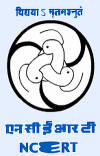
(Notification) National Conference on Developing
Mathematics Teachers for Quality Learning
Held on Dates: 20th, 21st and 22nd December, 2013
About National Conference of Developing Mathematics Teachers
Mathematics provides us an unlimited scope to perceive
problems under three situations- concrete, abstract and intuition. The important
segment of Mathematics- the ability to reason and think clearly- is extremely
useful in every aspect of life. The conference theme, Developing Mathematics
Teachers for Quality Learning for All is intended to focus on the Learning of
Mathematics taking place at different stages – Elementary, Secondary and
Undergraduate level. It needs to be seen how teaching of mathematics affects the
learning attitude of Mathematics in the learners including learners with
disabilities.
At present one of the challenges faced by the schools is
developing an inclusive school for all! But what constitutes inclusion; how a
mathematics class can take care of learning needs of children with special needs
and how should inclusiveness be developed in practice at different levels? How
is it interpreted? Has the idea of interdisciplinary approach and inclusion
affected the classroom of Mathematics? Has the transaction of mathematics in the
present system affected its learning at different stages? Such questions need to
be addressed in reference of learning Mathematics. Also, self-investigations on
issues and practices in Mathematics Education and its treatment can be discussed
in the conference.
In recent decades research in Mathematics education has
developed a view that the knowledge growth in Mathematics occurs through
interactions among a variety of learners. Fundamentally, the conference is
concerned with Mathematics teachers’ profile; however, a first consideration is
the learner of mathematics, who might be a child in a classroom of elementary or
secondary stage or undergraduate stage. It is also of fundamental concern what
mathematics will be learned and how. For example, is it sufficient for a student
to learn mathematical skills – the algorithms and rules for certain operations,
- or are we looking for deeper learning in terms of mathematical concepts,
relationships, applications and aesthetics for these operations? Paradigms of
conceptualising knowledge are important, as is mathematical epistemology.
Mathematics teachers’ knowledge and beliefs; attitude of thinking and
decision-making; their practices and development, which contribute to the
process of learning and teaching in Mathematics classrooms, can also be
investigated in the developing scenario. Keeping such questions in view, the
conference focuses on Mathematics teacher education with a concern for the
development of mathematics teaching that would enhance the learning experiences
of students of mathematics at different levels of education including
elementary, secondary and under graduate levels.